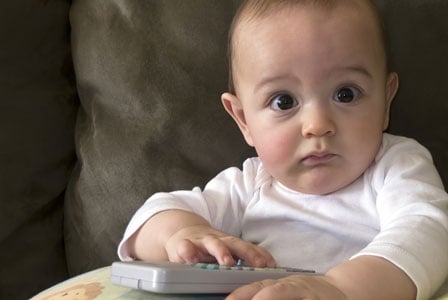
The television used to be considered the electronic babysitter, but today a variety of screens are entertaining babies and children.
The television used to be considered the electronic babysitter, but today a variety of screens are entertaining babies and children. From computers to tablets to DVD players in the car and screens at malls and grocery stores, our little ones are constantly bombarded with electronic media.
The American Academy of Pediatrics (AAP) released a new policy statement advising parents that electronic devices are not the best way for kids to learn. Remember good old-fashioned play?
The AAP released their first media advisory for children under age two in 1999, which discouraged TV watching for little ones. Despite limited research data at the time, the AAP believed there were more negative effects than positive ones for young children who watched television.
New data on child development
New data on how childrens’ brains develop has found that the AAP was right: children under two years of age should be as screen-free as possible. Research shows that through unstructured play, children learn how to think creatively, develop motor skills and reasoning abilities, and problem solve. Little ones learn best from interaction with real people, not characters on screens.
Little ones who are overexposed to the media risk delay in language development once they start school, but further research is required to explain why.
TV viewing before bed can also cause irregular sleep schedules and poor sleep habits, all of which can negatively impact mood, learning, and behaviour.
Here are some tips from the AAP to help you set screen limits for your little ones and set them on a healthy path to learning through play.
Advice for screen time for babies and toddlers
- don’t put a TV in your child’s bedroom
- be aware that if you have the TV on all day, it will impact your child
- make time for your child to play—with you and on their own
- set limits on screen time exposure for children under two (the AAP is against the use of electronic media for this age group)

















